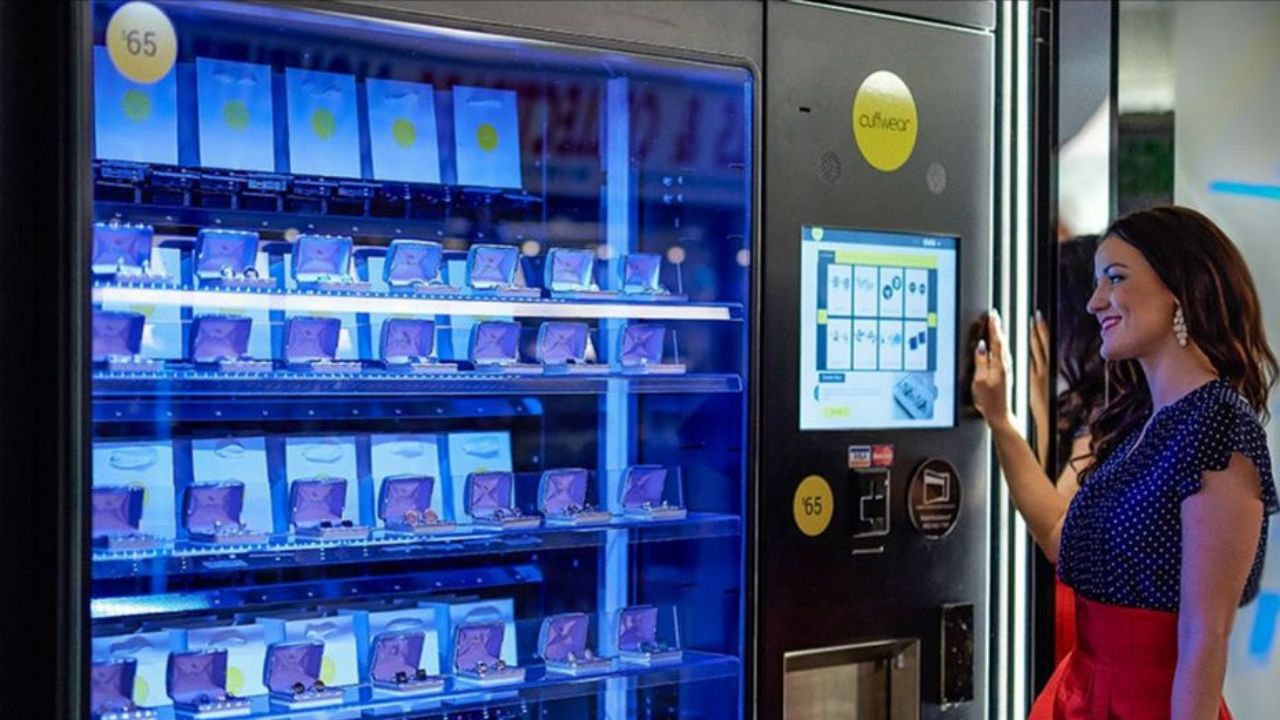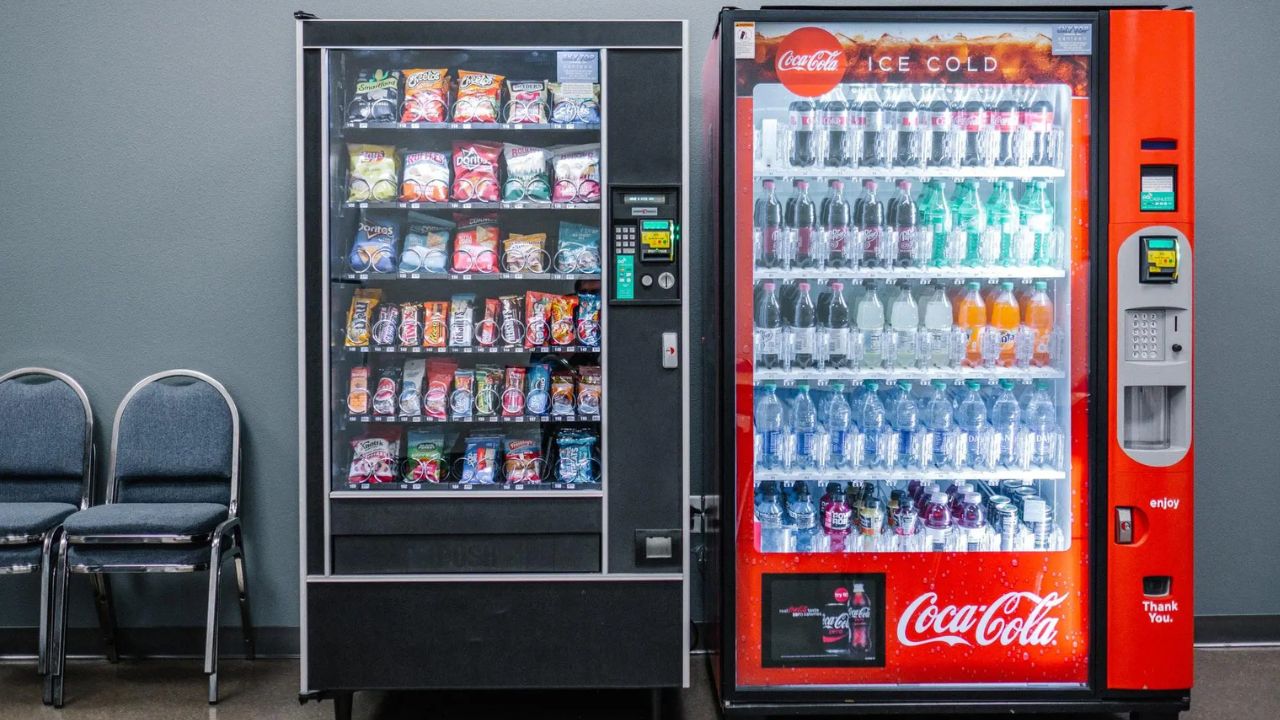Are vending machines a dying business? This question looms as technology advances and consumer habits evolve. Once a staple of convenience, vending machines have faced challenges in recent years. However, they continue to adapt and innovate, finding new niches and opportunities to thrive. Despite the rise of online shopping and brick-and-mortar stores offering diverse selections, vending machines remain relevant in certain sectors. Vending machines may be everywhere, from train and airport terminals to corporate buildings and schools, offering fast access to necessary commodities, drinks, and snacks for people on the go.
Moreover, advancements in vending technology, such as cashless payment options and interactive displays, enhance the customer experience and attract new users. While traditional vending models may face challenges, the industry must be updated. With strategic adaptation and a focus on meeting evolving consumer needs, vending machines can continue to carve out a valuable place in the marketplace for years
.
The Current State of Vending Machine Business
Assessing the current state of the vending machine business reveals a landscape shaped by technological advancements, changing consumer preferences, and economic factors. While traditional vending machines face challenges, such as increased competition from convenience stores and online retailers, there are still opportunities for growth and innovation within the industry. For instance, vending machines offering healthier snack options, artisanal products, or specialized items cater to evolving consumer demands for convenience and variety.
Additionally, integrating cashless payment systems, interactive displays, and data analytics has transformed vending machines into smart, efficient retail channels. Moreover, the COVID-19 pandemic has prompted a renewed focus on contactless transactions and hygiene, leading to innovations such as touchless vending and remote monitoring capabilities. While the vending machine business may face obstacles, strategic adaptation to emerging trends and consumer needs can pave the way for continued relevance and success in the marketplace.

Trends in the Vending Machine Industry
Several trends are reshaping the vending machine industry, influencing its evolution and future trajectory:
- There’s a growing demand for healthier snack options and sustainable products, leading to the introduction of vending machines stocked with fresh fruits, organic snacks, and eco-friendly items.
- Technological advancements play a significant role, integrating cashless payment systems, touchless interfaces, and data analytics to enhance convenience and efficiency.
- Customization and personalization are becoming increasingly important, with vending machines offering personalized and customized product recommendations based on consumer tastes and previous purchases.
- The rise of smart vending machines equipped with IoT connectivity and remote monitoring capabilities is streamlining operations and optimizing inventory management.
- The COVID-19 pandemic has accelerated trends towards contactless transactions and hygiene-focused solutions, prompting innovations such as touchless vending and UV sanitization technology.
Overall, these trends are driving innovation and reshaping the vending machine industry better to meet the needs and expectations of modern consumers.
Evolution of Consumer Behavior on Vending Machines
The evolution of consumer behavior has profoundly affected the vending machine industry, prompting significant shifts in strategy and offerings. With changing lifestyles and preferences, consumers seek convenience, variety, and healthier options from vending machines. As a result, vending machine operators are diversifying their product offerings to include fresh, nutritious snacks, beverages, and even meal options to cater to these evolving demands.
Additionally, technological advancements have empowered consumers with greater control and customization, allowing them to personalize their purchases and experiences. Furthermore, e-commerce and online shopping have influenced consumer expectations for seamless transactions and instant gratification, driving innovations such as cashless payment options and touchless interfaces in vending machines. Overall, the evolving consumer landscape presents challenges and opportunities for the vending machine industry, encouraging adaptation and innovation to remain relevant in a competitive market.
Technological Advancements in Vending Machine
Technological advancements have revolutionized vending machine technology, transforming traditional machines into smart, innovative retail channels. One of the most significant advancements is the integration of cashless payment systems, allowing customers to pay using mobile wallets, contactless cards, or even facial recognition technology, enhancing convenience and security.
Moreover, interactive displays and touchscreen interfaces enable intuitive navigation and customization of orders, enhancing the user experience. Additionally, IoT connectivity enables remote monitoring and management of vending machines, facilitating real-time inventory tracking, predictive maintenance, and data-driven decision-making.
Furthermore, advancements in vending machine robotics have enabled the automation of restocking and maintenance tasks, improving operational efficiency and reducing downtime. Overall, these technological advancements have not only modernized vending machine operations but also opened up new possibilities for customization, personalization, and enhanced customer engagement, driving the evolution of the vending machine industry into the digital age.
The Rise of Alternative Retail Models
The rise of alternative retail models presents new competition for traditional vending machines, reshaping the landscape of convenience retail. One significant challenge is the emergence of micro-markets, offering a curated selection of snacks, beverages, and fresh food items in a self-service format within workplaces and communal spaces. These micro markets provide a wider variety of products, including gourmet and artisanal options and amenities such as seating areas and digital kiosks for ordering.
Additionally, the growth of automated retail stores, often referred to as “unattended retail,” offers a seamless shopping experience with round-the-clock access to a diverse range of products, leveraging technology such as RFID, computer vision, and AI-powered inventory management systems. Furthermore, expanding online grocery delivery services and subscription-based snack boxes provide consumers with convenient alternatives to traditional vending machines. In response, vending machine operators adapt by diversifying their offerings, embracing technology, and enhancing convenience to remain competitive in the evolving retail landscape.
COVID-19 Pandemic’s Impact on Vending Machine Business
The COVID-19 pandemic has profoundly impacted the vending machine business, reshaping consumer behavior and operational priorities. With safety and hygiene becoming paramount concerns, vending machine operators have implemented stringent measures to ensure the cleanliness of machines and products.
This includes regular sanitization, contactless payment options, and the installation of protective barriers. Moreover, the pandemic has accelerated trends towards touchless technology and remote monitoring, enabling operators to manage machines efficiently while minimizing physical contact. However, the pandemic has also led to a decline in foot traffic in certain locations, such as offices, schools, and transportation hubs, impacting sales for vending machine operators.
Despite these challenges, vending machines have proven to be a resilient retail solution, offering convenient access to essential items in a contactless manner. Vending machine companies continue to innovate and change in response to the post-pandemic demands of consumers as the world adjusts to the new normal.

Adaptation Strategies for Vending Machine Operators
In reaction to changing customer tastes and market conditions, vending machine operators are implementing adaptation strategies to stay competitive and relevant. One key strategy is diversifying product offerings to include healthier snacks, beverages, and fresh food options, catering to changing dietary preferences and lifestyles. Additionally, operators are leveraging technology to enhance the customer experience with advancements such as cashless payment systems, touchscreen interfaces, and interactive displays.
Moreover, operators are exploring new locations and partnerships to maximize visibility and foot traffic, targeting high-traffic areas such as airports, gyms, and healthcare facilities. Furthermore, data analytics and predictive maintenance tools are utilized to optimize inventory management, reduce downtime, and improve operational efficiency. Lastly, operators focus on sustainability initiatives, incorporating eco-friendly practices and packaging to appeal to environmentally conscious consumers. Through these adaptation tactics, vending machine operators can effectively manage obstacles and seize chances to prosper in a swiftly evolving environment.
Opportunities for Innovation in the Vending Machine Sector
The vending machine sector presents abundant opportunities for innovation, with technological advancements, changing consumer preferences, and evolving market trends driving the need for creative solutions. One avenue for innovation lies in integrating artificial intelligence and machine learning algorithms to personalize product recommendations and optimize inventory management. Developing smart vending machines equipped with IoT connectivity also enables real-time data analysis, remote monitoring, and predictive maintenance, enhancing operational efficiency and customer satisfaction.
Moreover, there is potential for incorporating augmented reality and virtual reality experiences within vending machines to engage and entertain customers while they make their selections. Furthermore, opportunities exist to expand beyond traditional vending offerings and introduce specialized vending concepts, such as automated retail stores for niche markets or interactive vending experiences tailored to specific demographics. By embracing innovation, the vending machine sector can unlock new revenue streams, enhance the customer experience, and remain competitive in a dynamic marketplace.
Vending Machines in the Digital Age
In the digital age, vending machines are poised to revolutionize convenience retail with many new possibilities. With advancements in technology, such as touchless interfaces, cashless payments, and real-time inventory tracking, vending machines offer consumers a seamless and efficient shopping experience. Furthermore, predictive maintenance and customized recommendations are made possible by integrating artificial intelligence and machine learning algorithms, which enhance operations and boost customer satisfaction.
Additionally, the rise of smart vending machines equipped with IoT connectivity opens doors to innovative features such as remote monitoring, automatic replenishment, and interactive displays, transforming vending machines into intelligent retail hubs. Furthermore, the proliferation of vending machine networks and mobile apps allows for greater accessibility and convenience, enabling consumers to locate and purchase products easily. As vending machines continue to evolve in the digital age, they present exciting opportunities for businesses to innovate, engage customers, and redefine the future of retail.
Market Saturation and Its Effects on Revenue
Market saturation poses a significant challenge to vending machine operators, as an oversupply of machines in certain locations can lead to diminished revenue potential. When multiple vending machines compete for limited consumer attention and spending, individual machines may experience lower sales volumes and profitability. Market saturation can also result in increased competition for prime locations, driving up leasing costs and reducing operator profit margins.
Moreover, in saturated markets, consumers may become accustomed to the availability of vending machines and less inclined to make impulse purchases, further impacting revenue generation. To mitigate the effects of market saturation, vending machine operators must carefully assess demand and competition in potential locations, strategically diversify product offerings to differentiate themselves, and leverage technology to enhance the customer experience and operational efficiency. By implementing proactive strategies and adapting to changing market dynamics, operators can navigate the challenges of market saturation and maintain sustainable revenue growth in the vending machine industry.

Shifting Demographics and Their Influence on Vending Machine Usage
Shifting demographics profoundly influence vending machine usage, reshaping consumer preferences and behavior patterns. As demographics evolve, so do the demands and expectations of consumers, impacting the relevance and effectiveness of vending machines. As an illustration, younger generations like Gen Z and Millennials prioritize convenience, variety, and health-conscious options, driving demand for vending machines that offer fresh, nutritious snacks and beverages.
Additionally, as urbanization continues and lifestyles become increasingly fast-paced, there is a growing need for on-the-go solutions, making vending machines convenient for quick, accessible purchases. Moreover, shifting demographics encompass cultural diversity and dietary preference changes, prompting operators to diversify their product offerings to cater to a multicultural consumer base. Vending machine operators may effectively fulfill the changing requirements of their target audience and take advantage of new opportunities in the market by knowing and adjusting to changing demographics.
Regulatory Hurdles Facing Vending Machine Operators
Vending machine operators encounter various regulatory hurdles that impact their operations and profitability. One significant challenge is compliance with health and safety regulations, which govern food and beverage storage, handling, and sale. Operators must ensure that their machines adhere to strict sanitation standards and labeling requirements to minimize the risk of contamination and allergen exposure. Additionally, vending machines are subject to zoning laws and permitting regulations, which dictate where they can be placed and operated. This can present obstacles in securing prime locations with high foot traffic.
Furthermore, local authorities’ taxation policies and licensing fees can add to operators’ operational costs and administrative burdens. Moreover, emerging data privacy and consumer protection regulations may also affect vending machine operators, particularly those utilizing cashless payment systems or collecting customer data. Navigating these regulatory hurdles requires vigilance, compliance, and strategic planning to ensure smooth operations and sustainable growth in the vending machine industry.
Diversification Strategies for Vending Machine Businesses
Diversification is essential for vending machine businesses to thrive in a competitive market. One strategy is expanding product offerings beyond traditional snacks and beverages to include healthier options, fresh food, and specialty items tailored to changing consumer preferences. Moreover, operators can diversify their vending locations by targeting high-traffic areas such as airports, schools, and hospitals or exploring untapped markets such as office buildings and residential complexes.
Additionally, incorporating technology-driven solutions like cashless payment systems, interactive displays, and real-time inventory tracking can enhance the customer experience and operational efficiency. Furthermore, exploring partnerships with local businesses, brands, and suppliers can open new revenue streams and foster community engagement. By adopting a diversified approach, vending machine businesses can adapt to evolving trends, mitigate risks associated with market saturation, and capitalize on emerging opportunities to sustain growth and profitability in the dynamic vending industry.
Conclusion
While the vending machine industry faces market saturation, shifting consumer preferences, and regulatory hurdles, it is far from a dying business. Instead, it is undergoing a transformation fueled by technological advancements, diversification strategies, and innovative approaches to meet the evolving needs of consumers. Vending machines offer convenience, accessibility, and a wide range of product options, making them relevant in various settings, from workplaces and transportation hubs to schools and recreational facilities.
Moreover, the COVID-19 pandemic has underscored the importance of contactless transactions and on-the-go solutions, further cementing the role of vending machines in the retail landscape. By embracing adaptation, innovation, and strategic planning, vending machine operators can navigate challenges, capitalize on opportunities, and position themselves for continued success in the dynamic marketplace. Thus, rather than being a dying business, vending machines are poised to evolve and thrive in the digital age.
FAQ
Are vending machines still relevant in today’s market?
Despite challenges, vending machines remain relevant due to their convenience, accessibility, and ability to offer various products in various settings.
What factors contribute to the perception of vending machines as a dying business?
Market saturation, changing consumer preferences, and regulatory hurdles are some factors that contribute to this perception.
How are vending machine operators adapting to stay competitive?
Operators diversify product offerings, leverage technology for cashless payments and inventory management, and explore new locations and partnerships.
What role does technology play in the evolution of vending machines?
Technology enhances the customer experience with touchless interfaces, interactive displays, and personalized recommendations, driving innovation and efficiency in vending operations.
What opportunities exist for vending machine businesses to thrive in the future?
Opportunities include:
- Tapping into niche markets.
- Expanding product offerings.
- Embracing sustainability.
- Leveraging data analytics for informed decision-making.

